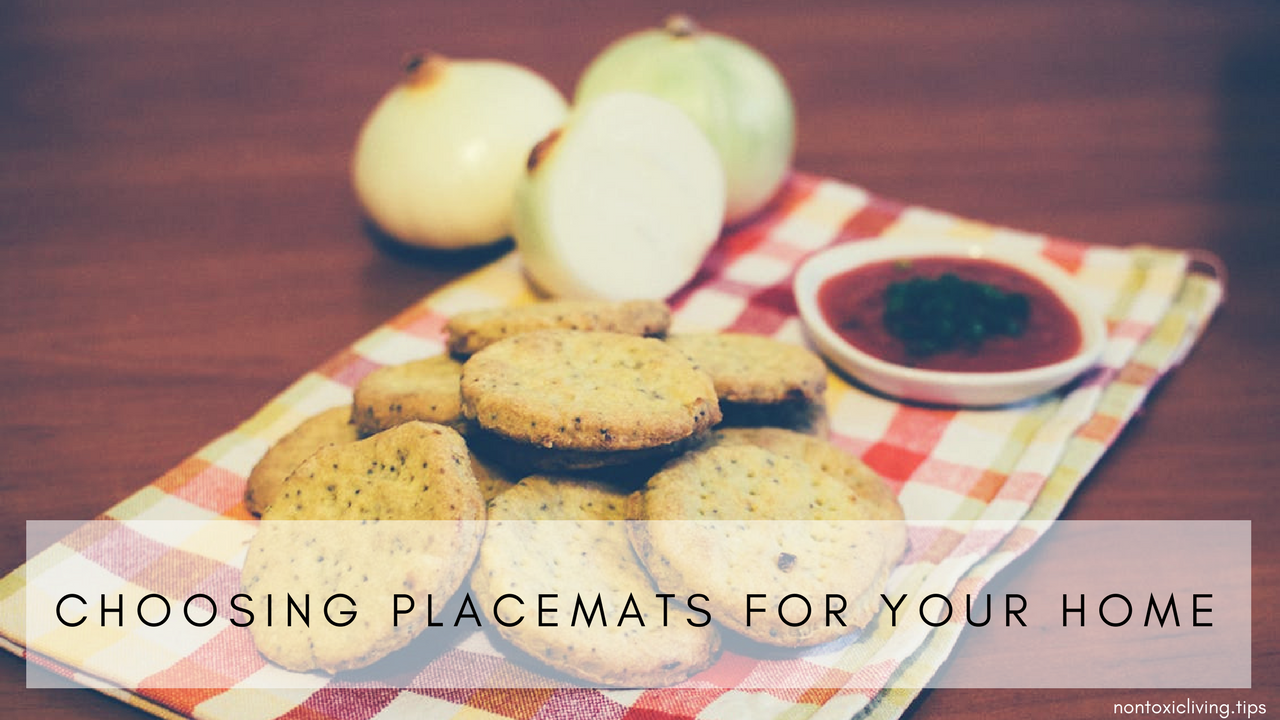
Choosing Placemats
Dec 04, 2017by Angela Cummings and Sophia Ruan Gushée
Placemats help to protect tables and add interest to table settings. While many people focus on the style of placemat, the material it’s made of is equally important.
Place mats can be made from natural materials (like cotton, hemp, or linen), or synthetic fibers (like polyester and nylon, vinyl, plastic, or wood). In addition, they can be dyed and treated with other chemicals. Some of these materials can contain chemicals that pose health risks.
Read my blog post about tablecloths for more information on how to select healthier placemats.
Consider the advantages and disadvantages of each type of placemat before choosing a style.


When choosing a placement, take into consideration both the style and what the placemat is made of. Natural placemats are typically a healthier option with fewer chemicals, easy to wash, but aren’t as durable as other placemat options. In many cases, durability may not be a concern and the trade off for a healthier home environment may be minimal.
References
(1) A to Z of D-Toxing, Works Cited Part 1



